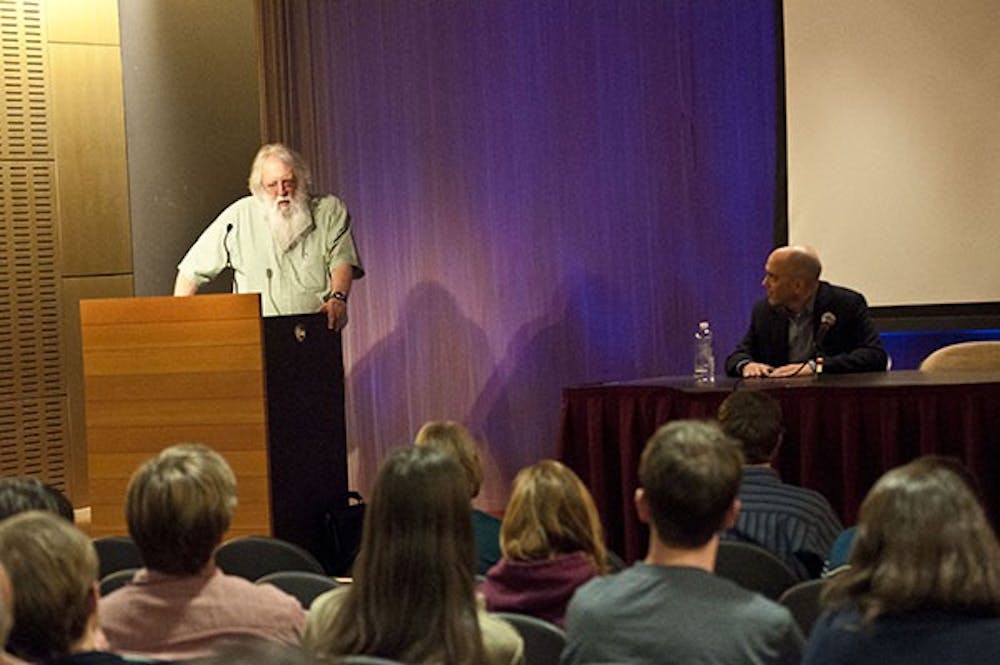 Dr. Rob Carlson and ASU experts talk about the future in bio-based innovations concerning food, drugs, and energy. The lecture involved a session where students could voice their opinions on the subject and ask the experts their personal opinions on biological technologies. (Photo by Katie Dunphy)
Dr. Rob Carlson and ASU experts talk about the future in bio-based innovations concerning food, drugs, and energy. The lecture involved a session where students could voice their opinions on the subject and ask the experts their personal opinions on biological technologies. (Photo by Katie Dunphy)
Rob Carlson, a “physicist-turned-bio-entrepreneur” and expert on synthetic biology, told a room a full of students that biological technologies will determine the effectiveness of innovations as a public good Monday and Tuesday at the Tempe campus.
The event was a two-part lecture and discussion that explored the scientific, economic and ethical dimensions of biological technologies.
Carlson’s book,“Biology is Technology: The Promise, Peril, and New Business of Engineering Life,” received the PROSE award for the Best Engineering and Technology Book of 2010 . Carlson earned a doctorate in physics from Princeton University in 1997 and now works for Biodesic, an engineering consulting and design company in Seattle.
“Biology is technology,” Carlson said. “Throughout the history of life on Earth, organisms have made use of each other in sophisticated ways.”
Carlson discussed the relationship between revenue generated in the U.S. and genetic modification of biological systems.
“Biotechnology companies currently employ about 250,000 people in the United States, out of a total labor force of 150 million,” he said. “Therefore, less than one-sixth of 1 percent of the national workforce generated approximately 5 percent of U.S. GDP growth during those seven years.”
Carlson said biological technologies are subject to the realities of the labor market.
“New products may fail for many reasons, including both overoptimistic assessment of technical capabilities and customer inertia,” he said.
There are interconnected marketplaces that govern products created by through biotechnologies, he said.
“Technology supports the spread of those markets, and technology is the subject of many of those markets,” he said. “New technologies provide opportunities to expand markets or launch entirely new ones.”
Biochemistry senior Kloe Hanson attended both lectures and said they were informative.
“The lectures were interesting and thought provoking,” she said. “ Some of the statistics (Carlson) provided were mind boggling.”
Hanson also said the lectures gave her a new perspective on her future goals.
“Before attending these lectures, I never considered how much of a relationship technology and science shared,” she said. “Now I realize that there are many options in my future.”
Business junior David Jones said the lecture was beneficial for him in relation to his major.
“There are many students majoring in business nowadays, so I think it’s important to find a unique way to spice up your résumé,” he said.
Jones said combining science with business creates many opportunities that otherwise would not be available.
“The development of science will continue to open up room for new business ideas,” he said. “The lectures opened my eyes to the endless opportunities out there for me.”
Reach the reporter at mmkallo@asu.edu or follow him on Twitter @its_ame_a_mario




